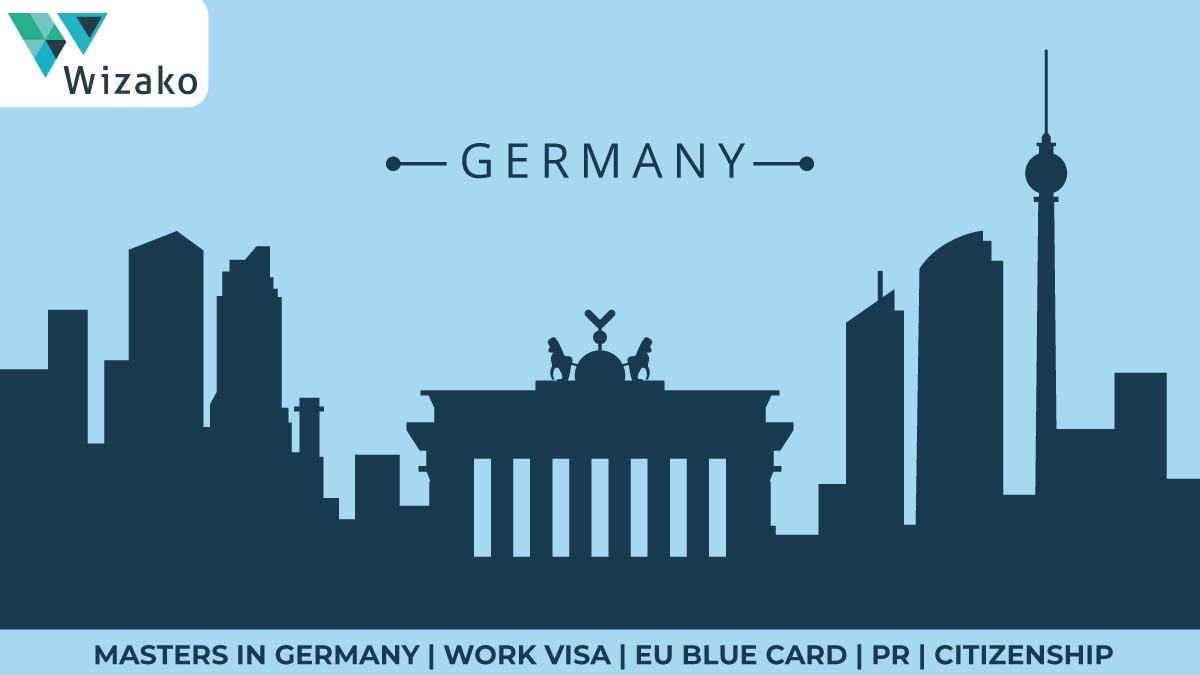Breaking News




Popular News













Enter your email address below and subscribe to our newsletter


When it comes to international work prospects, Germany ranks among the top in terms of providing overseas students with the most flexible and pleasant career options after Graduation or Masters in Germany. Apart from offering a plethora of career opportunities and an openness to international students, it is also a great place to study. With its soul-stirring scenery, beautiful big cities, and breath-taking palaces, the country attracts a bulk of international students, who prefer to stay in Germany post studies and hunt for work.
If you are an international student and are looking for complete knowledge on a work permit in Germany, you have come to the right place! In this article, we will explore the work permit for students as well as working professionals in Germany and everything else you need to know for your journey towards Residence Permit to Citizenship.
Working professionals wanting to relocate to the country temporarily or permanently, without pursuing a Masters in Germany, can look for job opportunities there through Job Seeker visa. The German job seeker visa permits the working professionals to stay in the country for six months while they hunt for work. If employed within six months, they become eligible to apply for a residence permit and are allowed to work and live in Germany. However, it should be kept in mind that the Job Seeker visa doesn’t provide a work permit. Having it simply implies that the visa holders can travel within the country and look for work.
How can one get a Jobseeker Visa to begin with? It’s really straightforward; apply for it at the nearest German embassy in the applicant’s home country.
If you have already secured an admit for Graduation or Masters in Germany, congratulations! Your hard work has paid off. You can now apply for Student Visa and explore not only Germany but also the entire continent! Student Visa is a residence permit for study purposes in Germany valid for a minimum of one year and a maximum of two years. If you have not obtained your degree within the stipulated time, you can request to have your residence permit extended.
Students visa provides the benefits of working part-time in Germany alongside studies. However, the rules differ for EU and non-EU students. Students from EU/EEA countries pursuing studies in Germany can work for up to 20 hours a week during semesters. On the other hand, international students from other countries can work in Germany for 120 full days or 240 half days per year. Apart from this, non-EU students, can’t work as freelancers or entrepreneurs. The upper limit on days is not applicable to students assistants or research assistants. Additionally, there’s a restriction on the money students can make without paying taxes. The upper limit for non-EU students on earnings without tax is up to EUR 450 per month.
Your student visa will expire when you finish your studies; however, after acquiring a German university degree or diploma, you can apply for an 18-month work visa. If you do not apply for this permit before your student visa expires, you will be forced to return to your native country. You can skip this step if you already have a job. For a residence permit extension, you must submit the following documents with your application:
After acquiring your extended residence visa, you can use the period to look for permanent employment in your field of study while also working part-time to augment your income. During these 18 months, you can work as much as you like and take any kind of employment to support yourself, but prior experience in your field of study is a significant advantage.
When you receive a job offer that matches your qualifications, you can apply for a residence permit in Germany. To begin working, you can apply for either German Residence Permit or an EU Blue Card. Let’s look at the two options in detail:
A Residence Permit allows foreign nationals to work in Germany for a set period of time, according to the terms of their job contract. Your permission will be valid for two years if your contract is only for two years and is valid for a maximum period of 4 years. You can, however, extend it as many times as you need as long as your work status remains unchanged.

You can apply for an EU Blue Card (similar to the US H1 B) as soon as you’ve identified a job offer you’d want to accept. The EU Blue Card for Germany is a work and residency permit for highly trained individuals wishing to work in Germany and the other EU member states. You can apply for a German Blue Card only if you meet the following criteria:
Link to apply for EU Blue card: https://www.apply.eu/
Following are some of the advantages of getting an EU Blue Card for Germany:
The German Blue Card fees are as follows:

Already have a temporary residence permit and want to stay in Germany permanently? Learn about the standards that you must meet as a trained professional in order to acquire a permanent residency permit, also known as a settlement permit under Section 18c AufenthG, (German Residence Act). A settlement permit opens many doors. You can live with your family members in Germany with no restrictions. Moreover, you can obtain employment or become self-employed.
If you are an EU Blue Cardholder, you can request to obtain a settlement permit in accordance with Sect. 18c (2) AufenthG (German Residence Act). The following requirements apply:
Cost of a settlement permit varies according to the job category in question. In general, applying for a settlement permit costs EUR 113. The application costs EUR 124 for the self-employed. Highly qualified professionals are required to pay EUR 147 to apply for a settlement permit.
When you live in Germany as a permanent resident, you do not qualify as a citizen of Germany. This imposes some limitations on your status, and that is why a lot of permanent residents of Germany seek German citizenship. It’s the last step in how to stay after Masters in Germany.
To qualify you must satisfy the following conditions:
Visit our website for more information on Graduation or Masters in Germany and other countries, scholarships, visa process, profile evaluation and more!
Website: https://myadmit.wizako.com/
We wish you luck on your journey abroad!
Alternatively, you can watch the video for a complete guide on work permit in Germany:
Youtube: youtube.com/myadmit
Instagram: https://www.instagram.com/myadmitpro/
Pinterest: https://www.pinterest.com/myadmit
Facebook: https://www.facebook.com/myadmit